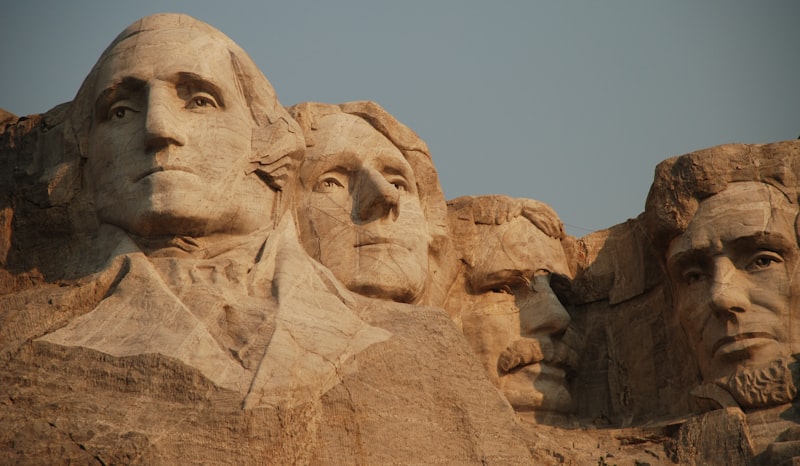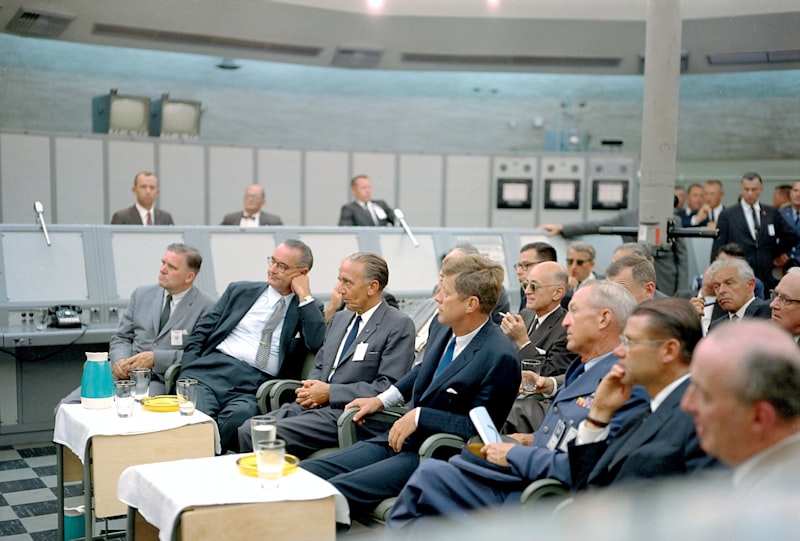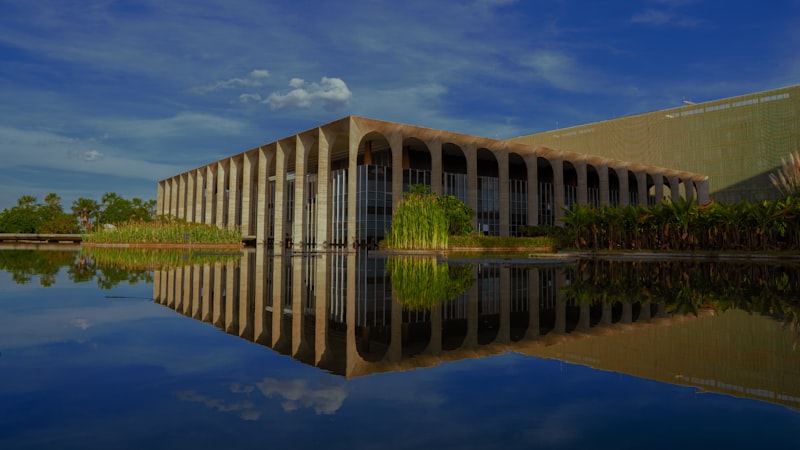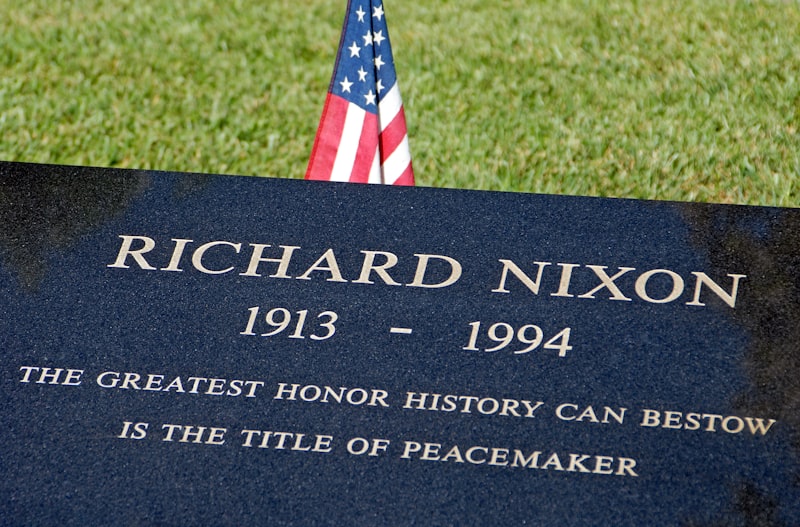Throughout the annals of American history, each President has left an indelible mark on the nation’s narrative, steering its course through triumphs, challenges, and transformative moments. From George Washington’s foundational leadership to Joe Biden’s current administration, every presidency has shaped the fabric of America in unique ways.
George Washington, the nation’s first President, set crucial precedents for the young republic, establishing the framework of executive authority and the peaceful transition of power. His leadership during the Revolutionary War and his two terms in office laid the groundwork for a strong federal government.
Abraham Lincoln, often revered as one of the greatest Presidents, guided the country through the Civil War, preserving the Union and emancipating millions of enslaved individuals with the Emancipation Proclamation. His steadfast leadership during a tumultuous period ensured the United States remained united and committed to equality.
Franklin D. Roosevelt’s presidency marked a pivotal moment in American history with his New Deal programs that aimed to lift the country out of the Great Depression. His innovative policies expanded the role of the federal government in social welfare and laid the foundation for modern economic regulations.
In the midst of the Cold War, John F. Kennedy brought a new era of optimism with his vision for the nation’s progress, including advancements in civil rights and the ambitious goal of landing a man on the moon. His assassination in 1963 left an enduring impact on American politics and society.
More recent Presidents like Ronald Reagan and Barack Obama each left their unique legacies: Reagan with his conservative revolution and economic policies, and Obama with his historic election as the first African-American President and his efforts to reform healthcare and financial regulations.
Each President, from George Washington to Joe Biden, has faced distinct challenges and opportunities that have shaped American society, culture, and politics. Their decisions, policies, and leadership styles have left an indelible mark on the nation’s history, influencing generations and shaping the course of the world’s oldest democracy.
This article provides a brief overview of how different U.S. Presidents have influenced American history, highlighting their contributions and legacies in a concise and engaging manner.
From Washington to Biden: Exploring the Legacies of Every U.S. President

Throughout American history, each president has left a distinct mark on the nation’s story. From George Washington, the first president, to Joe Biden, the current leader, the legacies of these individuals shape the course of the United States. Washington’s leadership established the presidency’s foundational principles, setting a precedent for future presidents. His emphasis on unity and national identity forged the path for a young nation.
Following Washington, Thomas Jefferson expanded America’s horizons with the Louisiana Purchase, doubling the country’s size and promoting westward expansion. Abraham Lincoln, known for preserving the Union during the Civil War and emancipating enslaved people, redefined freedom and equality.
Franklin D. Roosevelt led the nation through the Great Depression and World War II, introducing New Deal programs that laid the groundwork for modern social welfare. His fireside chats connected him intimately with the American public during times of crisis.
John F. Kennedy inspired a new generation with his vision for progress and the space race. Ronald Reagan’s conservative policies reshaped American politics, emphasizing individual liberty and economic deregulation. Barack Obama’s election marked a historic moment as the first African American president, advocating for healthcare reform and economic recovery after the Great Recession.
Donald Trump’s presidency was marked by unconventional politics and divisive policies, focusing on immigration, trade, and deregulation. Joe Biden’s administration seeks to unify a deeply polarized nation, tackling issues like climate change, healthcare, and racial justice.
Each president’s legacy reflects the challenges and triumphs of their time in office. Their decisions resonate through generations, shaping American society and influencing global affairs. As the United States continues to evolve, the legacies of these leaders serve as a testament to the enduring impact of presidential leadership on the nation and the world.
The Most Influential Presidents in American History: A Historical Analysis
Abraham Lincoln, often revered as one of the greatest presidents, navigated the country through the Civil War and issued the Emancipation Proclamation, setting the stage for the abolition of slavery. His eloquence in speeches like the Gettysburg Address resonates even today, embodying his commitment to preserving the Union and advancing equality.
Franklin D. Roosevelt, during the Great Depression and World War II, implemented the New Deal, a series of reforms that revitalized the economy and provided relief to millions. His leadership style and radio addresses, known as “fireside chats,” connected him directly with the American public, instilling confidence and hope during tumultuous times.
George Washington, the first president, laid the foundation for the American presidency and set precedents that shaped the nation’s governance. His leadership during the Revolutionary War and his decision to step down after two terms established the tradition of peaceful transfer of power, crucial for the stability of the young republic.
Thomas Jefferson, known for drafting the Declaration of Independence, expanded the United States through the Louisiana Purchase, doubling its size. His advocacy for individual rights and religious freedom influenced the trajectory of American democracy and ideals.
Theodore Roosevelt, a champion of progressive reforms, took on monopolies, protected natural resources, and advocated for consumer rights. His energetic approach to presidency earned him the nickname “Trust Buster,” reflecting his commitment to fairness and competition.
Each of these presidents left an indelible mark on American history, shaping the nation’s identity and trajectory through their vision, decisions, and leadership. Studying their legacies provides insights into the challenges they faced and the enduring principles that guide the United States today.
Unveiling the Leadership Styles That Defined America’s Presidents
One of the most iconic leadership styles was embodied by Abraham Lincoln. Often hailed as one of America’s greatest presidents, Lincoln’s leadership was marked by his ability to unite a divided nation during the Civil War. His eloquence in speeches like the Gettysburg Address resonated deeply, showcasing a transformational leadership style that inspired a nation to strive for a more perfect union.
Contrasting Lincoln, Theodore Roosevelt brought a bold and energetic style to the presidency. Known for his robust personality and boundless energy, Roosevelt embraced a hands-on approach to governance. His leadership was characterized by decisive action, as seen in his trust-busting efforts and conservation initiatives that shaped America’s environmental policies for generations.
Moving forward, Franklin D. Roosevelt redefined presidential leadership during times of crisis. Facing the Great Depression and World War II, FDR’s leadership was marked by his ability to instill hope and confidence through his Fireside Chats. His adaptive and empathetic leadership style brought forth innovative New Deal programs, fundamentally altering the role of the federal government in American life.
Fast-forward to modern times, and one encounters the leadership of Ronald Reagan, known for his transformative vision of limited government and economic conservatism. Reagan’s communication skills and optimistic demeanor enabled him to enact sweeping policy changes, epitomizing a charismatic and ideological leadership style that resonated with many Americans.
As we reflect on these diverse leadership styles, it becomes evident that there is no one-size-fits-all approach to leadership. Each president navigated unique challenges and opportunities, leaving a legacy that continues to shape our understanding of leadership in the modern era. From Lincoln’s unity amidst division to Reagan’s vision for a renewed America, these leaders showcase the power of leadership styles in shaping the course of history.
Economic Titans or Foreign Policy Icons? The Presidential Impact on History

Throughout history, presidents have wielded power not only within their borders but also on the global stage. Their decisions ripple through time, shaping economies and foreign policies alike. Imagine a world where a single leader’s choices can sway markets or forge alliances that endure for decades.
Take Franklin D. Roosevelt, whose New Deal policies pulled America from the Great Depression’s depths, reshaping economic landscapes worldwide. His bold initiatives sparked hope and rebuilt shattered confidence, illustrating how presidential actions can alter the course of history.
Similarly, in the realm of foreign policy, figures like John F. Kennedy and his handling of the Cuban Missile Crisis showcased presidential diplomacy at its zenith. The brinkmanship of those thirteen days in October 1962 tested global nerves but ultimately averted catastrophe, highlighting the pivotal role leaders play in international relations.
Yet, not all presidential impacts are positive; decisions can lead to unintended consequences or global upheaval. Consider the aftermath of George W. Bush’s Iraq War decision, a move that redefined America’s global standing and sparked years of turmoil in the region.
In essence, presidents are not just political figures but economic titans and foreign policy icons whose legacies endure far beyond their terms. Each choice they make resonates across generations, influencing everything from trade agreements to military interventions.
As we navigate an interconnected world, understanding the presidential impact on history becomes crucial. Their decisions echo through time, shaping our present realities and informing future strategies. So, whether hailed as heroes or scrutinized for missteps, presidents leave an indelible mark on the tapestry of global history.
Trailblazers and Trendsetters: U.S. Presidents Who Redefined the Nation
Washington’s unwavering dedication to the ideals of liberty and democratic governance established the framework for the presidency. His leadership in the Revolutionary War and his voluntary relinquishment of power after two terms set a precedent that would endure for centuries.
Thomas Jefferson, the principal author of the Declaration of Independence, expanded the nation’s territory with the Louisiana Purchase, doubling its size and setting the stage for westward expansion.

Andrew Jackson, known as the “people’s president,” championed the rights of the common man and expanded suffrage, although his legacy is marred by his policies towards Native Americans.
Abraham Lincoln’s presidency is synonymous with the struggle for unity and equality. His Emancipation Proclamation and Gettysburg Address are landmarks in the fight against slavery and for the preservation of the Union.
Franklin D. Roosevelt’s New Deal transformed the role of the federal government in American life, providing relief during the Great Depression and laying the foundation for a modern welfare state.
Each of these presidents left an enduring legacy, shaping the nation’s identity and future. Their actions and decisions resonate through history, influencing subsequent generations of leaders and citizens alike. As the United States continues to evolve, these trailblazers and trendsetters remain touchstones of leadership, resilience, and vision.
From Crisis Management to Cultural Shifts: How Presidents Leave Their Mark
Take, for instance, Franklin D. Roosevelt, whose leadership during the Great Depression and World War II transformed America’s perception of government’s role. His New Deal policies not only aimed to lift the nation out of economic despair but also redefined the social contract between citizens and their government. Roosevelt’s fireside chats became a symbol of reassurance and connection, illustrating how effective communication can foster unity during turbulent times.

Similarly, Nelson Mandela’s presidency in post-apartheid South Africa symbolized hope and reconciliation. Emerging from decades of racial segregation, Mandela’s leadership emphasized forgiveness and nation-building. His commitment to inclusivity and equality set the stage for a new era of diversity and tolerance in South African society.
Presidents often face pivotal moments that test their resolve and define their legacy. How they handle crises like economic downturns, natural disasters, or political turmoil can shape public perception and historical judgment. Barack Obama, for instance, confronted the aftermath of the 2008 financial crisis and spearheaded healthcare reform, aiming to expand access and affordability for millions.
Moreover, cultural shifts under a president’s tenure reflect evolving societal norms and values. Whether advancing civil rights, environmental conservation, or technological innovation, presidents influence public discourse and policy direction. Their decisions ripple through society, impacting everything from education and healthcare to international relations and economic growth.

Presidents wield significant influence beyond political maneuvering. They mold national identity, inspire change, and navigate challenges that define their era. Their ability to navigate crises while fostering cultural evolution shapes their lasting impact on history and the collective memory of their nation.
Frequently Asked Questions
How did Franklin D. Roosevelt’s New Deal reshape American economics
Learn how Franklin D. Roosevelt’s New Deal transformed American economics during the Great Depression through innovative policies aimed at recovery, including public works projects, financial reforms, and social welfare programs.
How did George Washington influence the foundation of the United States
Learn how George Washington’s leadership and strategic vision significantly shaped the foundation of the United States, from his pivotal role in the Revolutionary War to his presidency. Discover his enduring influence on the country’s political structure, guiding principles, and national identity.
How did Barack Obama’s presidency impact healthcare in the United States
Learn how Barack Obama’s presidency transformed healthcare in the United States, focusing on key reforms such as the Affordable Care Act (ACA) which expanded access to health insurance, regulated insurance practices, and aimed to lower healthcare costs.
What role did Ronald Reagan play in shaping modern conservatism
Learn about Ronald Reagan’s pivotal role in shaping modern conservatism, from his advocacy of free-market principles to his emphasis on limited government and traditional values. Discover how his policies and leadership style influenced the trajectory of conservative ideology in the United States.
What impact did Abraham Lincoln have on the abolition of slavery
Learn about Abraham Lincoln’s significant impact on abolishing slavery in the United States through legislative actions such as the Emancipation Proclamation and advocacy for the 13th Amendment.


